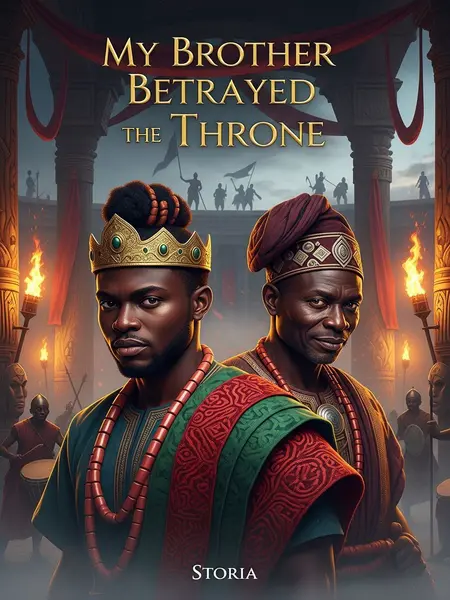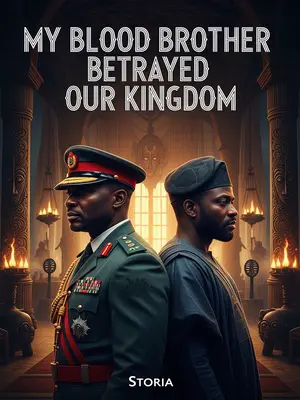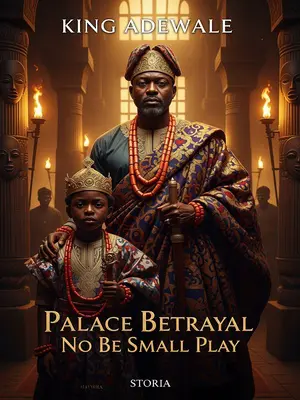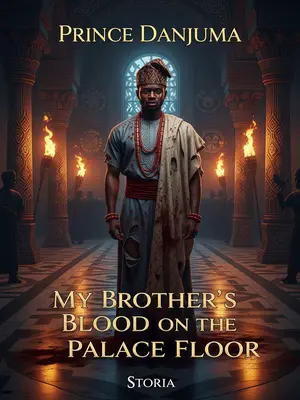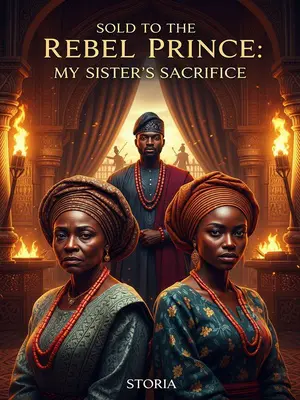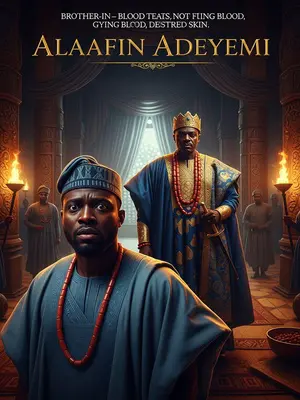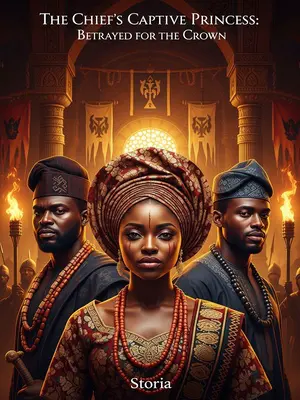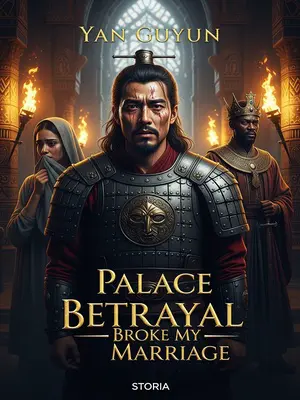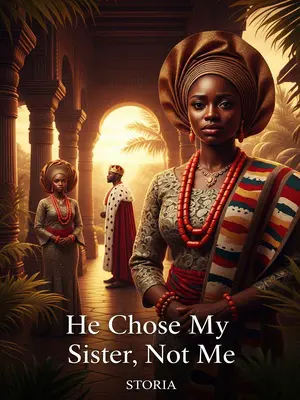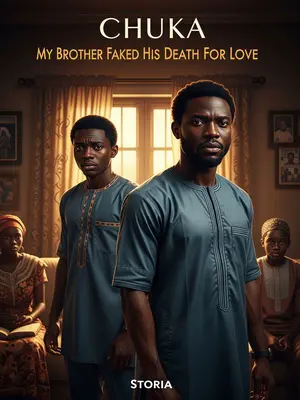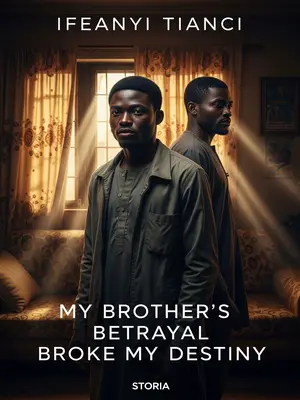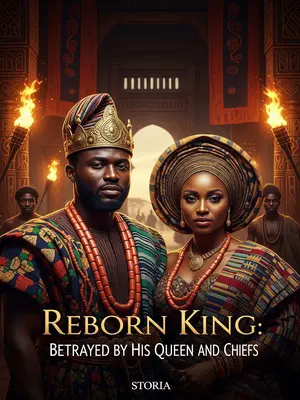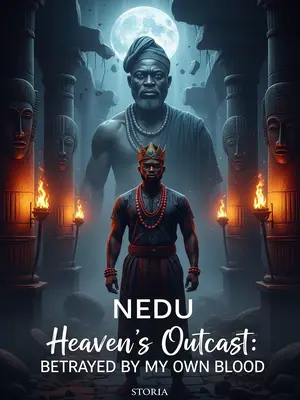Chapter 4: The Ambush of the Prince
---
## 3. Ambush!
Early the next morning, Adeyemi took a small group of guards to a hill east of Ajegunle, to check how Okechukwu’s men were arranged.
The dawn was still, the mist heavy, masking the movement of men. The ground was slippery, and the scent of burnt palm fronds hung in the air. Adeyemi, restless from the night’s celebration, needed to see for himself the state of things. He trusted his own eyes more than any scout.
But as he reached the top, enemies rushed out from the grass, surrounding him.
Sharp whistles cut through the air, birds flew up in fright. From the tall elephant grass, warriors leapt, blades flashing. For a heartbeat, even Adeyemi’s horse stamped and snorted, sensing danger.
Like we talk before, Okechukwu—no matter his wahala—knew how to do trick. Two years before, at the Battle of the Sacred Grove, he used someone who resembled Chief Olumide to trick the Ibadan Army of 100,000 men, making them think their oga was caught, so they lost hope, and he won with just 20,000 men.
The tale of that trick became caution for all Yoruba warriors—"Never trust only your eye in battle." Even now, mothers warn their children, "Eyes fit deceive; heart must be sharp."
Okechukwu sabi trick people well.
His laugh after a successful trick was enough to make grown men curse under their breath. He always found new ways to turn strength into weakness.
For the last fight, Okechukwu was watching Adeyemi closely, noticed that Adeyemi liked to go to the front with only a few guards.
He sent spies among the market women, knowing even the innocent looking face can carry news like river carry canoe. The lesson: never think your enemy is sleeping.
With secret information, Okechukwu arranged a special team to "hunt Adeyemi," sending them to hide in places Adeyemi might pass, hoping to catch him unaware.
The warriors picked for the ambush painted their faces with red clay, their bodies oiled, charms tied to their waists. The smell of camphor and bitterleaf followed them.
Worse, the team was led by his strongest general, Ayo the Giant—his power matched Kolapo or Baba Oja.
Ayo the Giant, son of a blacksmith and raised on yam and palm oil, was known for breaking enemy shields with his bare hands. Some even said he swallowed seven kolanuts before battle, so he would not feel pain.
Now, as they surrounded Adeyemi, he saw Ayo the Giant in the distance, leading horsemen from all directions. Adeyemi’s guards quickly formed a circle to protect him.
The ground seemed to shrink, the air thick with danger. Each man gripped his weapon tight, eyes darting. One of the guards muttered, "Olorun ma je ka ku loni—God forbid bad thing today."
But to their shock, Adeyemi ordered, “All of you, go! I will cover your back!” At first, they thought they didn’t hear well.
The guards looked at one another, not believing. In Oyo, to leave your prince alone was abomination, but his voice was thunder. Adeyemi's eyes told them he meant every word.
Adeyemi shouted again, “Go! Now! I will hold them!” This time, they rushed off, leaving only a small number with him.
The sound of feet scrambling down the hill was lost in the war cry of Ayo’s men. The few who stayed behind pressed close, ready to die if need be.
As Ayo the Giant and his men closed in, Adeyemi’s hand was fast: draw, put arrow, pull, release. The big arrows pierced the chest armour of four, five attackers, the sound like axe chopping wood.
Even Ayo paused for a split second, surprised by the power of the prince’s bow. The men behind him whispered, "This one no be ordinary prince."
Everybody feared death—except Ayo the Giant.
Ayo's eyes shone with madness, his chest heaving. To him, this was the day legends are born, and he wanted to be the one to break Oyo's backbone.
His dream was to catch Adeyemi alive. Why? Because Okechukwu promised him a kingship if he could defeat Oyo. Ayo the Giant, straightforward and strong, believed every word.
He had already told his mother back in Umunna, "When I return, call me king." The women at home waited, their prayers hanging in the air like unripe fruit.
So, as he saw Adeyemi, happiness filled him. He led the attack himself, forgetting fear.
His voice rose above the clash: "Adeyemi, today na your last day!" Even the birds stopped singing.
Adeyemi saw Ayo the Giant coming, vex catch him. He drew his bow to the limit, shot.
He thought of all the insults, all the threats, and let his anger guide his hand. The arrow sang through the air.
But Ayo the Giant, whom people called “Flying Warrior,” dodged sharp sharp, arrow missed him. He pushed his horse, pointed his long spear, aiming for Adeyemi’s back.
Spectators later swore they saw the shadow of Ogun behind Ayo, his movement swift as river after rain. The spear gleamed, ready to taste royal blood.
Danger!
Adeyemi’s heart skipped, but his spirit did not break. Time slowed. The ancestors whispered: "Move, son of Oyo!"
At the last moment, Orunmila, Adeyemi’s trusted horse, burst with speed, ran like wind, leaving Ayo the Giant behind. Even as he was running, Adeyemi looked back to check who was following him.
Hooves pounded, dust flew, and Orunmila’s mane streamed behind like river grass. Adeyemi’s eyes never left the enemy, his mind calculating every turn.
Not all his guards were lucky. Some fell, one was even picked by Ayo the Giant’s spear, the body dangling in the air.
The screams of the fallen echoed, a bitter reminder that not every song ends in joy. Those left behind carried the pain to their graves.
At last, Adeyemi reached the Oyo camp.
He slumped from his horse, legs shaking. The guards at the gate gasped, not recognizing their leader at first. Orunmila neighed, flanks quivering. The women rushed to bring water, some crying. Adeyemi coughed, wiping blood and dust from his face, finally revealing himself. The elders knelt, offering prayers, "Ase, ase! Our prince has returned!"
Dust covered him, his body battered, people didn’t even recognize him again. The guards at the gate first wondered, until he removed his helmet, wiped his face, and they saw it was their prince. They rushed to open the gate for him to rest.
They poured cool water on his head, gave him kola nut and bitterleaf soup to steady his spirit. Old Mama Folashade, the camp’s herbalist, rubbed camphor on his wounds, whispering, "You will not die, my son. Sango dey with you."
Since Adeyemi joined the army at sixteen, he had never seen this kind wahala before.
He sat alone that night, staring into the fire. The songs of victory had turned to quiet prayers. Even the youngest drummer played softly, as if afraid to disturb the spirits of the land.
He didn’t know that the fight between him and Okechukwu was far from over. Each one would bring him closer to death.
The moon rose, full and bright, casting long shadows over the camp. Adeyemi’s dreams were restless; the faces of the fallen came to visit, their voices urging him not to sleep too long.
That night, Kolapo gripped Adeyemi’s shoulder, both men silent, but their eyes said what words could not. The bond of brotherhood, born in battle, wrapped around them like a second skin.
